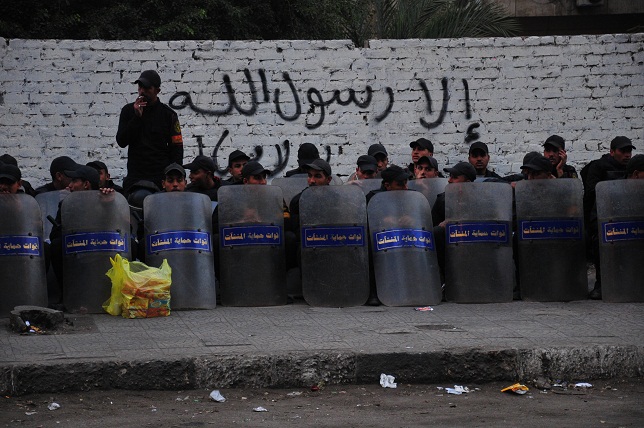CAIRO: The Egyptian government is launching a year-long integrated study aimed at assessing the scope and prevalence of human trafficking in Egypt.
The study will be spearheaded by the National Center for Criminological and Social Research (NCCSR) with assistance from six United Nations agencies; the UN office on Drugs and Crime, the UN Population Fund, the UN Development Fund for Women, the International Labor Organization and the International Organization for Migration.
“It is expected that these United Nations agencies and the International Organization for Migration will support the government in expanding its efforts to tackle human trafficking, with a special focus on raising public awareness through media campaigns and building the capacities of relevant stakeholders, a statement from the UN Resident Coordinator’s Office in Egypt reads.
Speaking in a ceremony held yesterday at the foreign ministry during which a memorandum of understanding was signed between the NCCSR and the Human Rights Capacity Building Project, assistant foreign minister for international organizations Naila Gabr explained that it is anticipated that the legislation will be drawn up on the basis of the study’s findings.
“Our challenge is a lack of statistics and data on the scope of the problem. We are keen to have this research in order to inform future policies, Gabr said.
NCCSR’s Nagla Khalil explained that the $100,000 study seeks to discover whether Egypt is merely a transit point or whether illegal trafficking is organized in the country and the reasons underlying trafficking activity.
UN resident coordinator in Egypt James Rawley said that human trafficking has began to “move more into the center of the development agenda in recent years.
“I’m optimistic based on what I’ve seen happen over the last few years. As in many countries this issue wasn’t at the top of the development agenda but in recent years has began to move more into the center of the development agenda – a National Coordinating Committee to Combat and Prevent Trafficking was set up in 2007, Rawley told Daily News Egypt.
“This [year-long study] I think is important. We have six UN agencies, a lot of expertise on the subject. To me this shows an openness to get a better fix on the problems – the domestic dimensions, the international dimensions – and how these can be addressed through legislation and executive actions.
In its 2009 annual report on trafficking on persons the US State Department placed Egypt on the “Tier 2 Watch List .
In countries on this Watch List there is a “very significant or “significantly increasing number of trafficking victims and a “failure to provide evidence that of increasing efforts to combat severe forms of trafficking . from the previous year [covered by the 2008 annual report] .
The report notes that some victims of trafficking are punished for acts committed as a direct result of being trafficked and that “the government took minimal steps to combat the serious issues of child sex tourism and the involuntary domestic servitude of children or to raise awareness of trafficking among the general public.

